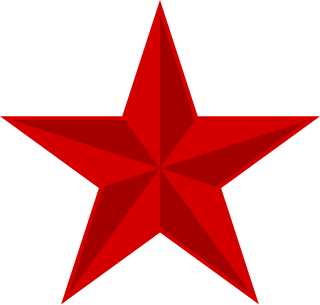Related Research Articles

Elections in Dominica have been taking place since 1832. Dominica elects on national level a legislature. The House of Assembly has 32 members, 21 members elected for a five-year term in single-seat constituencies, 9 appointed senators, the Speaker and 1 ex officio member. A head of state—the president—is elected by the House of Assembly.
The British Empire Citizens' and Workers' Home Rule Party, also known as the Butler Home Rule Party and more commonly as the Butler Party, were a series of political parties in Trinidad and Tobago organised by Tubal Uriah Butler.

The Progressive Labour Movement was a major centre-left political party in Antigua and Barbuda and, until the 2000s, was the only political party to have defeated the Antigua Labour Party in an election.

The Dominica Labour Party is a centre-left social-democratic political party in Dominica.

General elections were held in Dominica on 31 January 2000 and saw the Dominica Labour Party led by Rosie Douglas take power defeating the previous government of the United Workers' Party led by Edison James, despite the UWP receiving more votes. The DLP won 10 seats, the UWP 9 seats and the Dominica Freedom Party took 2 seats. Voter turnout was 59.25%. The Dominica Labour Party formed a government in coalition with the Dominica Freedom Party. Voter turnout was 60.2%, the lowest since the introduction of universal suffrage in 1951.

The Grenada United Labour Party (GULP) is a political party in Grenada.

General elections were held in Dominica on 19 August 1954. No political parties contested the elections and all candidates ran as independents. Voter turnout was 70.3%.

General elections were held in Dominica on 26 October 1970. Prior to the elections, the ruling Dominica Labour Party split, with a faction led by Prime Minister Edward Oliver LeBlanc contesting the elections as the 'LeBlanc Labour Party' and the other faction contesting under the DLP name and led by N.A.N. Ducreay. The LeBlanc faction won 8 of the 11 seats. Voter turnout was 81.6%.
The Dominica United People's Party was a political party in Dominica. It first contested elections in 1961, when it finished second behind the Dominica Labour Party and won four of the eleven seats with 25.6% of the vote. In the 1966 elections it increased its share of the vote to 32.2%, but won only a single seat. It did not contest the next elections in 1970 then the Dominica Freedom Party became the main opposition party.
The All Island Industrial and Farmers Party was a political party in Dominica. It contested the 1961 general elections, receiving 8.1% of the vote but failing to win a seat. It did not run in any subsequent elections.

The Peasant and Workers Movement was a political party in Dominica. It contested the 1961 general elections, receiving only 2.9% of the vote and failing to win a seat. It did not run in any subsequent elections.
The Dominica Democratic Party was a political party in Dominica. It contested the 1961 general elections, receiving only 125 votes (0.8%) and failing to win a seat. It did not run in any subsequent elections.
The Progressive Labour Party was a political party in Dominica. It contested the 1975 general elections, receiving 4.2% of the vote, but failing to win a seat. It did not run in any subsequent elections.
The Caribbean Federal Party was a political party in Dominica. It contested the 1975 general elections, receiving just 119 votes (0.6%) and failing to win a seat. It did not run in any subsequent elections.
The Dominica Liberation Movement Alliance was a political party in Dominica. It contested the 1980 general elections, receiving 8.4% of the vote but failing to win a seat. It did not contest any subsequent elections. The party merged with Dominica Labour Party in 1985.
The United Dominica Labour Party (UDLP) was a political party in Dominica.
The Dominica Progressive Party was a minor political party in Dominica. It contested the 1985 general elections under the name Dominica Progressive Force, receiving only 78 votes (0.2%) and failing to win a seat. It changed its name prior to the 1990 elections, but received only 74 votes (0.2%) and again failed to win a seat. Although it did not participate in the elections in 1995 and 2000, it returned for the 2005 elections in which it put forward three candidates but failed to win a seat. In the 2009 elections it received only 24 votes.

The Democratic Labour Movement (DLM) was a political party in Guyana.
The Progressive Labour Party was a political party in Saint Lucia.

The Labour Party is a minor political party in Moldova led by Gheorghe Sima.
References
- ↑ "The Europa Year Book 1982 A World Survey Vol.-ii". 1982.
- ↑ Dieter Nohlen (2005) Elections in the Americas: A data handbook, Volume I, pp232-234 ISBN 978-0-19-928357-6
- ↑ Lansford, Tom; Muller, Tom (2 April 2012). "Political Handbook of the World 2012". SAGE.
- ↑ Nohlen, p231